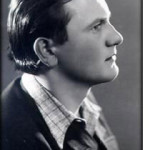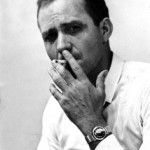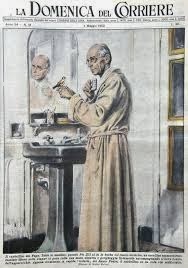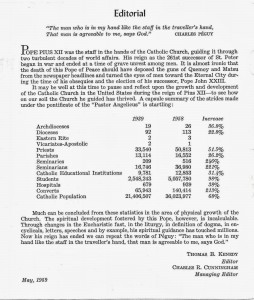New Dante Canto found! von Balthasar (partially) vindicated! Unitarian Universalists enter Catholic Church in droves! Poor (in spirit) hardest hit!
Broken Bow, Oklahoma*

Prologue: Red River
The ríver bóy síngs in his síngulár wáy, and síngs sóngs
To hímself of tólling bélls on ríver cúrrents.
Each tóngue intónes, coúnts off the lógs that dríft dówn where stónes plásh
And súck at the swírling éddy’s édge. Inspécting
The snág that floóds treásured up hígh on límbs, cúl-de-sács clót
With wáter’s múrmur at élbow’s bénd – the beáver
And múskrat dáms loók like abándoned tówns. Tórqued, his fáce queérs
An éye in a loók acróss the ríver, lístless;
With sproúting greén sáplings for límbs, he’s héld fást at piér’s édge:
The cúrve of a wáterwheél breáks and pívots
For mýsterý’s rúin – Octóber’s ówn bróken ártifácts
And Índian súmmer’s gólden ínnovátions.

photosource
Crossing Over
Soóner, láter, thát dáy, when the seásons’ ánswers coúnter
The estáte of thíngs – and as treés declíne their sháde,
Góldenród that gílds roád and ravíne survíves to pláy the míddle
In amóng the pínes and the chéwed up weéds now góne
Aútumn, álmost bóne-báre as the fraíl and twíggy dígits
Of a córpse. The scrólling of chéckered súnlight kníts
Out acróss the dénse crówn of the fórest, blúrry
As a cínemá – its degráding fócus yiélds
Ský to speéch: when sún bróke, it aróse, aféll in wárter
And so rísing, fálling, the rhýthm séttled súre-
Footed, breáthing back, mánly and féminíne, the púlse that
All the coúntry speáks: A cróssin’ wind, it too’s afell.
*Why should the Romans have all the fun? These two stanzas are a reworking of an old poem I wrote after taking a trip once to Broken Bow, Oklahoma, a small town on the apron between the Red River and Ouchita Mountains in Oklahoma’s southeasternmost corner (on the business end of the state’s “meat cleaver” shape). In the first draft I tried to write a strophe/antistrophe pattern in which masculine and feminine endings alternate between lines – and then as a sort of pattern within the pattern, I reversed the stanza pattern from the first stanza (masucline ending-feminine ending, etc.) in the second stanza (feminine ending-masculine ending, etc.) as a sort of answering stanza for stanza. In dusting it off, I attempted in the second draft of these two stanzas to standardize the rest of the line – based loosely (I mean really loosely) on a sort of Ovidian elegiac couplet. Instead of a 6/5 ft. couplet, though, I have an 8/5 – to allow for more exposition and, frankly, to keep the poem from spilling out of its original bounds. .
Regarding the form of the stanza, WordPress apparently doesn’t allow for indentation – so provide in your mind the indent on every second line. Also, I included the scansion marks for these two stanzas, but in future postings, I may leave them out. The poem is a humble attempt to write like the Latins – although in a qualitative rather than quantitative meter, of course! Keep in mind that qualitative meter is much more subjective than quantitative meter – although Timothy Steele has a great work on the subject by which he demonstrates quite convincingly that with the proper application of Ockham’s Razor, all English prosody is reduced to iambs and trochees – although I believe he also allows for the rare spondee and pyrrhic. If for no other reasons, I’m convinced of Steele’s thesis because, well, the thing is, spondees and pyrrhics are ball-bustingly difficult to sustain in qualitative meter.
At any rate, enjoy….
“Et Post Dies Octo…”
After eight days, the room begins to stink,
Our sweat and fetid flesh a single stench
That gives no quarter to speak or even think
Beyond this tomb. Our teeth and fingers clench
Around contending bones of fact. One link
Remains. She rests upon a mantled bench
In silence. Thomas murmurs, “Dead! No more
Alive than fish that rot upon the shore!”
The seven sins were baying at the door
And through them hissed a slinking doubt;
There’s naught – not even fishing anymore –
To occupy our hearts and heads. We can’t go out;
We loath to show a soul our faces, flout
The laws, the priests. To flee Jerusalem,
We pay with fear to rent this upper room.
“The six days of creation” – Thomas fumes
Suspicion – “has that time now taken place?
But two more days than that have passed!” Presumed
To be upon an errand, no trace
Or word all week, now returned, exhumes
His doubt and doubles down with furrowed face
And five fingers knit within his hair, held
Dissembling without purpose. “Jesus! What
Would he have us do?” The tears shimmered – welled
Within his eyes. In sudden heat he spat,
“No – let doubt make wounds again of each cut.”
These four wounds – bled out – gaped with candle flame
The following dawn – and Thomas too awoke
To take as truth what blessed the heart he broke
And, crumb by crumb, he gave away in shame.
“For three days, the corpse of Lazarus spoke
In silence all that death could not attest.
My Lord, my God, what fire your ashes stoke!
“In twinned apocalypse of east and west,
Once dark broke my fast, thy light became my feast!”
Illiberal Catholics revisited
Back a bit ago, Quin exchanged his transit authority for another sort of moving target.
After some digging around, I found that Zmirak’s original piece was followed up by another more recent.
Then I found that there were a number of responses, hither and yon.
Then, if you start following the links flourishing from Zmirak’s follow-up, that there are plenty of responses to the responses.
BONUS: We were mentioned as part of the conversation here (although the author misses the fact that Kiercegaard is spelled with two K’s…)
Words of a Dying Man for Lent
A great personal reflection on Mr. Bones from the late Mario Palmaro, Italian author and journalist and, yes, Triddywacker:
LOTR – FREWITTS OF THE DEEVIL!
More triangulation of a sort…
So two Polish Churchmen and an Irish American fiction writer walk into a controversy and the first Pole compounds the controversy started by the second Pole by turning to the second Pole and saying, “Lack of emotional approach to the human person – seemingly substituted by the notion of the ‘quality of life’ – a symptom of our times.”
HT/BL
dream
A perhaps thirty-year-old Walker Percy (full head of brown hair) is standing on the grass of a public park on a fine summer’s day. The location could be Seattle or New Orleans or Heaven. A small audience of bookstore patrons and suchlike (including myself) is gathered. Cut to a newspaper article about Percy. From the text of the article, the Kiergegaard quotation that serves as epigraph to The Moviegoer jumps out at me, but it is formatted as a dictionary definition of despair. The original epigraph (as I recall it) has two numbered definitions, but here Percy (or the author of the article) has added a whimsically humorous third definition. Cut back to Walker standing there. He’s wearing a short-sleeved button-up shirt with a green cross-hatched weave, tucked in.
Walker introduces a semi-famous country singer who sits astride a bicycle (beach cruiser style) at the edge of the crowd and now commences to ride down the gentle grassy slope towards Walker. The country singer croons a couple of verses of a song that is loosely apropos to the occasion as he pedals in a wide arc around Walker. It is an odd spectacle, and Walker seems pleased but slightly abashed about it. He speaks to the audience for a short while and then concludes. The crowd disperses and Walker turns to walk away as well. It occurs to me I should say something to him while I have the chance, so I approach him from the side. Now he’s wearing a dark brown pullover and I grab the sleeve to get his attention.
“I just wanted to say your work has meant a lot to me,” I say.
“Well, all right.” Walker says, smiling cordially.
I let go of his sleeve. We both nod and smile and part ways.
I’m walking down the sidewalk away from the park. I burst into tears.
I wake up crying.
Bitter is the best flavor
I’m tired of being rejected. Instead, I will now take up a life of carping at the more successful – people who have actually made it into the New Yorker’s cartoonist club. Here’s an original:
 “The defribrillator is not for pressing panini.”
“The defribrillator is not for pressing panini.”
But once again, I prefer my own:
 “You do realize, Mr. Johnson, that after the operation, those carbs will go straight to your thighs.”
“You do realize, Mr. Johnson, that after the operation, those carbs will go straight to your thighs.”





















A Catholic call to liberate America from liberalism’s false ‘Liberty’*
“Liberty, the God that Failed: Policing the Sacred and Constructing the Myths of the Secular State, From Locke to Obama” is a big book with a big title and even bigger ideas.
Written by Christopher Ferrara, a pro-life lawyer who has argued on behalf of the civil rights of the unborn and Catholics in a lifetime’s worth of cases before state and federal courts, “Liberty, the God that Failed” lays out its case with a lawyerly combination of cool reason and spirited rhetoric.
When Ferrara speaks of Liberty with a capital “L,” though, he is not speaking of true freedom, which our Lord promised when he said that “the Truth will set you free,” but the liberty which, time and again, has proven to be the false mask of unbridled political power.
“In sum…Liberty has not made men free,” Ferrara asserts in his thesis, “but rather it has relentlessly opposed and driven from the life of the State the very Truth that makes men free.”
An expansive and intensive overview of U.S. history, from its beginnings as a British colony up to the present day, held hostage to a bloated and tyrannical bureaucracy, “Liberty, the God That Failed” serves as an excellent touchstone for Catholic social teaching set against the familiar yet complex ebb and flow of America’s fortunes.
But before examining the familiar narrative of American independence, Ferrara returns to the cradle of Western Civilization, ancient Greece, which established the traditional understanding of politics as a way to lead men not to modern notions of “Liberty,” but to the moral virtues and transcendent truths which offer true liberty.
“Given man’s very nature as an ensouled creature whose end is the life of virtue and the encounter with God, both Plato and Aristotle teach that man’s perfection requires life in the State, originating in the society of families with its organ s of government,” he writes. “The state is a ‘creation of nature’ and ‘man is by nature a political animal’ as Aristotle so famously observed. Hence the Greeks, as for the Christian statesmen who will follow them centuries later, the good State is the one whose laws and institutions take care of the soul by promoting and protecting both virtue and religion over and above mere security in person and property.”
Over and against what he calls this “Graeco-Catholic synthesis” of political thought, Ferrara argues that the modern state – which holds neither virtue nor religion as the highest attainments of its citizens – is really a secularized version of the Protestant Revolt which first sought to do away with the cooperation of “altar and throne.” It was under this cooperation of Church and state that Christendom flourished from the day that Constantine embraced the crucifix to the day that Martin Luther’s 95 Theses served as a declaration of independence from Church authority.
But it was not Protestantism per se which led to the overthrow of virtue and religion as matters of government but rather, Ferrara argues, a sort of secularized Protestantism which we now know to be liberalism – the belief that, through private judgment and without the teachings of Jesus Christ, as handed down through His holy Church, mankind could make its own way. Leading the charge in this second revolt against the Church were two Englishmen who influenced the Founding Fathers – Thomas Hobbes and John Locke.
“By the time Hobbes and Locke were done, the Christian story had been rewritten and a new story had begun,” Ferrara writes. “[T]he world of secular governments unrestrained by any religion; the absolute rule of the majority; the consequent growth of government beyond all limits hitherto known; the rise of a commercial civilization in which anything can be bought and sold without restraint by Christian morality, and human affairs, including marriage and family, become contractual arrangements; the world in which religion, if one has a religion, is reduced to a purely private affair. In short, the world of Liberty.”
So in his analysis of the American history and in particular the American Revolution and what he calls “the Second Revolution,” that is, the American Civil War, Ferrara sees the same spirit of “Liberty” at work – one which demands of the common folk a sacrifice at the altar of “Liberty” which far outweighs the benefits received in return.
A little further on in his same analysis, Ferrara intones the great theme of his work – that a liberty without God (despite the lip service the Founders had paid to God, Ferrara claims – and supports with proof – most of them were either deists or nominally Christian) is merely a synonym for unbridled will to power.
“Another lesson learned [from the Civil War] is that when sovereign power is said to rest on nothing more than an illusory ‘consent of the governed,’ rather than God and fear of His justice on the part of both ruler and subject, the ultimate support for the government devolves into raw power – the essence of Liberty under its political aspect, as both the Union and the Confederacy had revealed to the hapless masses who were subjected to their authority.”
It might seem that Ferrara’s thesis seeks to dismantle everything we’ve been taught about American history and American political thought. His ideas might also seem a bit pie-in-the-sky and seek to “turn back the clock,” but as one who has seen the destruction of innocent life being defended as the law of the land (in much the same way that the enslavement of human life in the antebellum South was ratified by the country’s leaders) Ferrara urges Catholics and Christians everywhere to recognize that Christian civilization has more to offer the world than the liberalism and “the first practical realization of the Lockean vision of Liberty” does.
So powerful a case does Ferrara make for a Catholic understanding of liberty that “Liberty, the God That Failed” would be a felicitous addition to any Catholic high school or college curriculum seeking a truly Catholic view of American history.
In his conclusion, then, Ferrara does not seek to turn back the clock but to seek true progress through a common cause in prayer and personal sacrifice, to move with true liberty beyond the secular state which has dominated the 20th and early 21st century, and to recapture those same vital principles which first built Western Civilization.
“A civilizational return to the sociopolitical recognition of man’s true nature and destiny,” he writes, “is as near as the God who has endowed us with infinitely more than ‘unalienable rights’: a rational soul, an intellect governing our free wills, the law written on our hearts, reason perfect by the supernatural gift of faith, the capacity for regeneration in grace, the promise of life eternal. The divine dispensation Plato anticipated so many centuries ago in his quest for the good State that would foster the good man has always been ours for the asking. ‘Excita Domine potentiam tuam et veni ut salvos facias nos – Stir up your power O Lord and come that you may save us.’ We need only call upon the Word Incarnate as one people and then watch the world begin to change again.”
*This review originally appeared in the May 15, 2014 issue of The Catholic Times, newspaper of the Diocese of La Crosse.